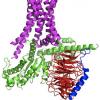Article by ChatGPT:
Exploring the Complex Interplay of Nicotinic Acid, NAD+, and IGF-1: Implications for Longevity
In the quest for longevity and healthy aging, scientists and health enthusiasts alike have been exploring various avenues, from dietary interventions to supplementation strategies. Among the substances garnering attention for their potential role in promoting longevity is nicotinic acid (NA), also known as niacin or vitamin B3. NA has been linked to increased levels of nicotinamide adenine dinucleotide (NAD+), a coenzyme crucial for cellular metabolism and DNA repair. However, recent discussions have surfaced regarding the potential impact of NA on another key factor in longevity: insulin-like growth factor 1 (IGF-1).
Nicotinic acid, primarily in its nicotinamide adenine dinucleotide (NAD+) precursor form, has gained traction in longevity circles due to its purported benefits for cellular health and energy metabolism. NAD+ plays a vital role in various cellular processes, including DNA repair, gene expression regulation, and energy production. Declines in NAD+ levels have been associated with aging and age-related diseases, leading to interest in strategies to boost NAD+ levels as a means to support longevity and healthy aging.
One such strategy involves supplementation with nicotinic acid, which has been shown to increase NAD+ levels in cells and tissues. By replenishing NAD+ levels, NA supplementation theoretically could support cellular health and resilience, potentially extending lifespan and healthspan. However, recent researchsuggests that the relationship between NA, NAD+, and longevity may be more nuanced than previously thought.
While NA supplementation may indeed increase NAD+ levels, emerging evidence* suggests that it might also have implications for insulin-like growth factor 1 (IGF-1) levels. IGF-1 is a hormone that plays a crucial role in growth and development, but it also has implications for aging and longevity. Higher levels of IGF-1 have been associated with accelerated aging processes and increased risk of age-related diseases in some studies.
The potential dilemma arises from the fact that NA supplementation, while boosting NAD+ levels, may also increase IGF-1 levels. This raises questions about the net effect on longevity and healthy aging. While elevated NAD+ levels are generally considered beneficial for cellular health and longevity, the simultaneous increase in IGF-1 levels could introduce conflicting effects that may diminish or offset those benefits.
The interplay between NAD+ and IGF-1 levels and their effects on longevity is complex and multifaceted. While elevated NAD+ levels have been linked to various health benefits, including improved mitochondrial function, enhanced DNA repair, and potentially even lifespan extension, the implications of increased IGF-1 levels are less clear-cut.
Higher levels of IGF-1 may promote growth and tissue repair, but they could also accelerate aging processes and increase the risk of age-related diseases. Therefore, the simultaneous elevation of NAD+ and IGF-1 levels through NA supplementation introduces a potential trade-off between cellular health and growth-related signaling pathways.
As our understanding of these molecular mechanisms continues to evolve, it becomes increasingly important to consider the broader context when exploring interventions aimed at promoting longevity and healthy aging. While NA supplementation holds promise for boosting NAD+ levels and supporting cellular health, its effects on IGF-1 levels warrant further investigation.
Ultimately, achieving longevity and healthy aging may require a multifaceted approach that considers the complex interplay of various factors, including dietary patterns, lifestyle habits, genetic predispositions, and supplementation strategies. While NA supplementation may offer benefits for cellular health through increased NAD+ levels, its potential impact on IGF-1 levels underscores the need for cautious consideration and further research into its long-term implications for longevity and healthy aging.

















































